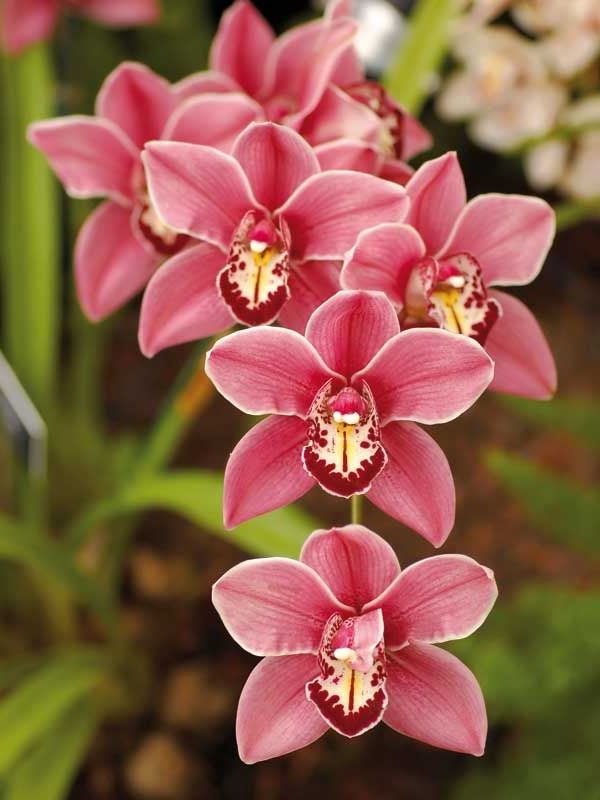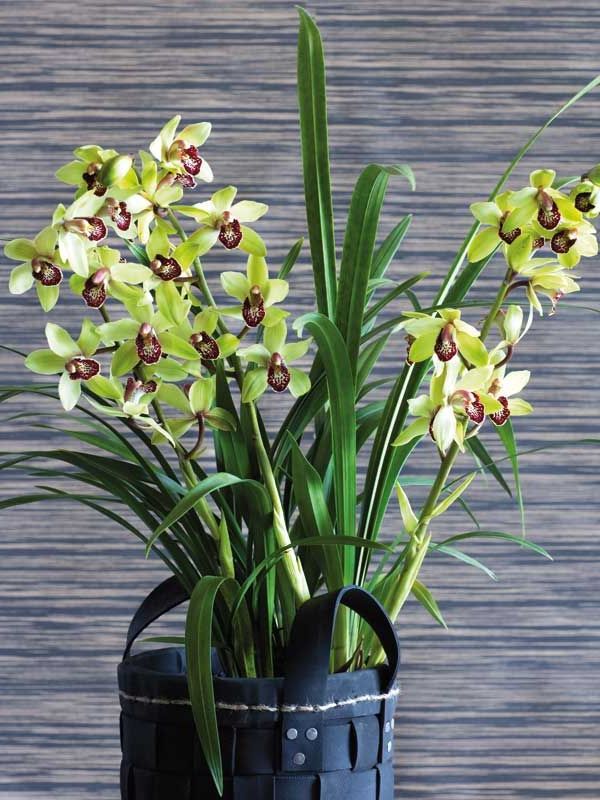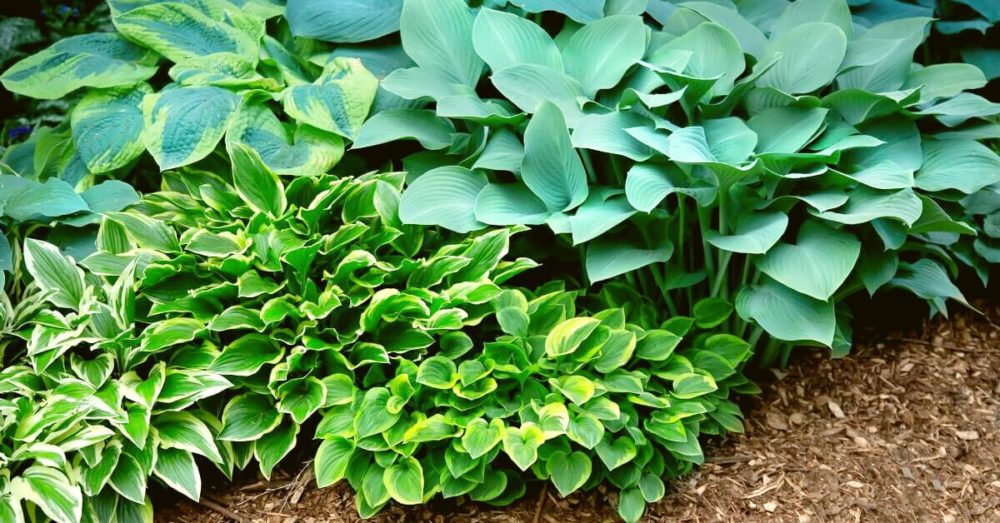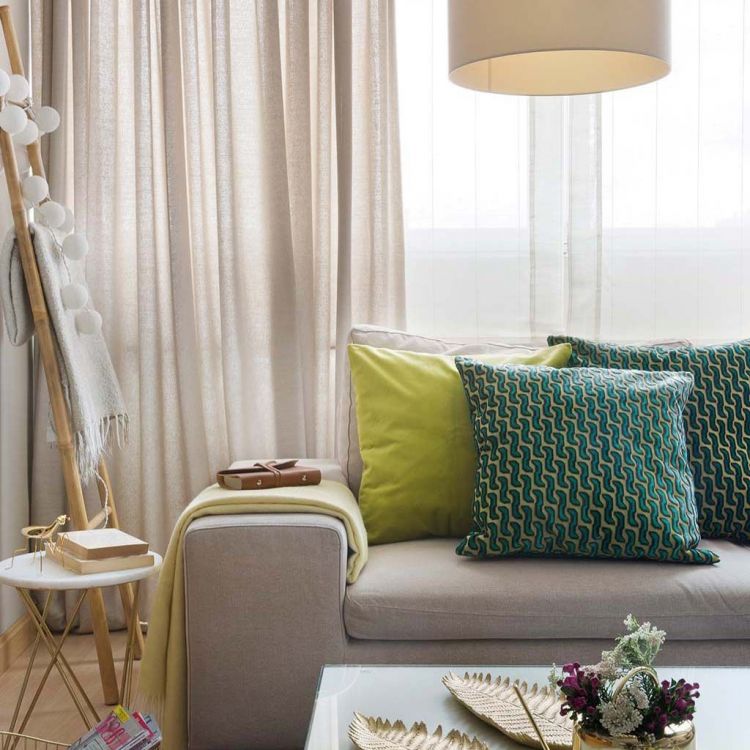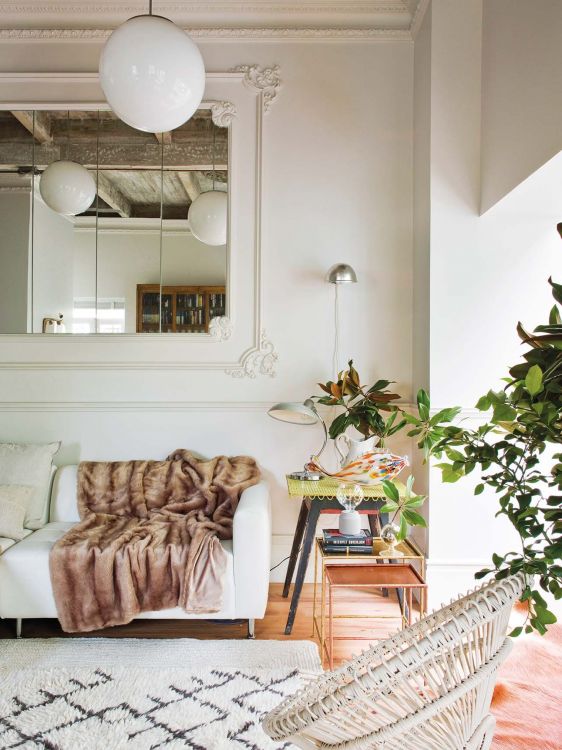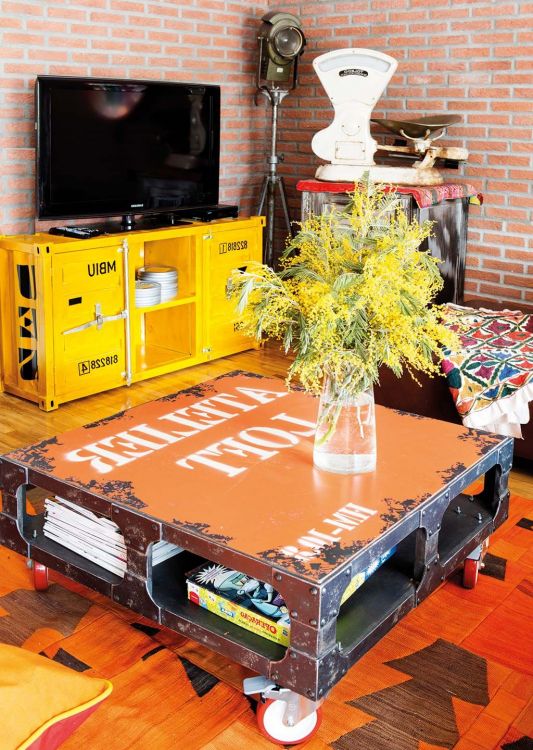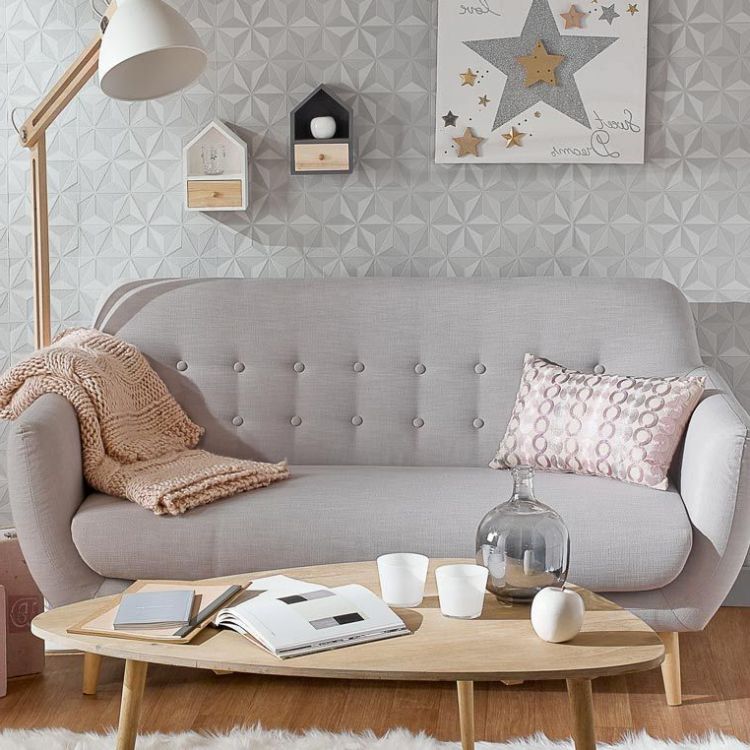This plant, from the orchid family, is perfect for growing indoors due to the beauty of its flowers and its resistance. We tell you how to take care of it and prolong flowering
The cymbidium was the first orchid sold as a houseplant. It originates from the tropical and equatorial areas of Southeast Asia and Australia, and its name comes from the Greek kumbos, meaning hole, and refers to the shape of the base of the lip. Under this denomination, more than 100 varieties and thousands of hybrids are grouped, which are divided into two groups: standard, which are massive plants with large flowers, and miniature, which are more compact, with smaller flowers that bloom in winter and have a great resistance –they withstand light frosts–, so they are very easy to grow. The roots are whitish, thick and fleshy in texture.
Las florets del cymbidium
Its flowers, grouped in clusters, are the longest of all orchids, have a waxy texture and can be white, pink, yellow or mauve. The dark green leaves are ribbon-shaped and can be up to a meter long.
When does it bloom? The flowering process is as follows: in spring and summer, new shoots, called pseudobulbs, form and mature at the base of the old ones. In late summer and early fall, when temperatures begin to drop, the floral wand appears. At the end of autumn and during the winter, flowering occurs, sometimes scented, and lasts between 8 and 12 weeks. To favor it, it is convenient to take the plant outside at the end of spring.
Cymbidium care
Which pot is the right one ? This plant does not need large pots. It grows best in spaces where the roots are well compacted. It is not convenient for it to be a porous container, but it does have good drainage. And if it is transparent, better, since that way the roots will receive the light they need and, in addition, we will be able to check their condition.
Where is it best to place it? The cymbidium requires a lot of light, although it is advisable to avoid direct sunlight on the leaves, especially during the hottest hours. It can withstand fairly cool temperatures, even below zero, if the substrate is completely dry and it is not for a long time. Of course, drafts do not suit you.
What kind of flooring do you need? The best substrate is the special one for orchids. If you want to prepare it yourself, choose a mixture of peat and bark, which drains well and has a pH between 5 and 6.
What is the best time to transplant it ? It should be done every two or three years, after flowering. There are two systems: in the first, the entire root ball is preserved, the pot is changed and it is filled with new substrate, pressing well. The second, recommended when the roots are not well, consists of cutting the lower third of the root ball with a disinfected knife to avoid infections in the plant. Then the remaining 2/3 are put in the pot and filled with substrate. This system seems more radical, but if the plant is healthy, it supports it well and strengthens it.
Tutor to shape them
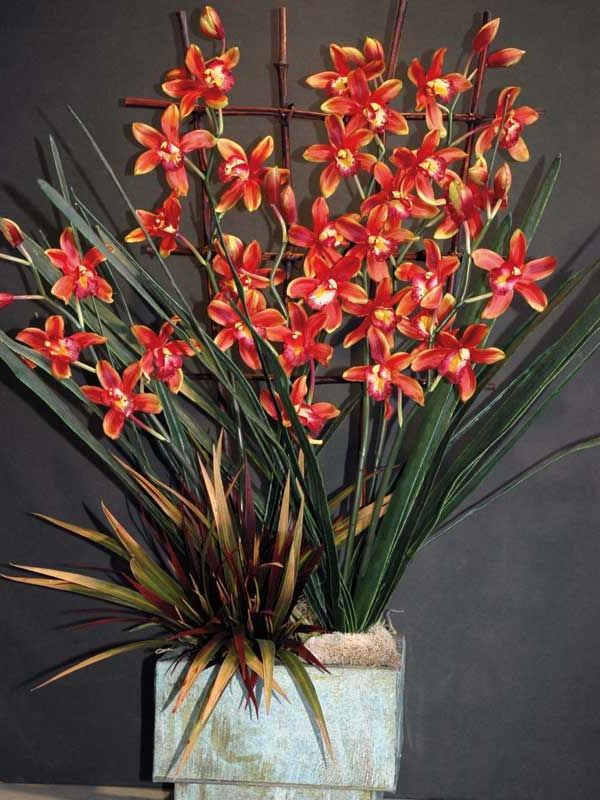
Most frequent problems of the cymbidium
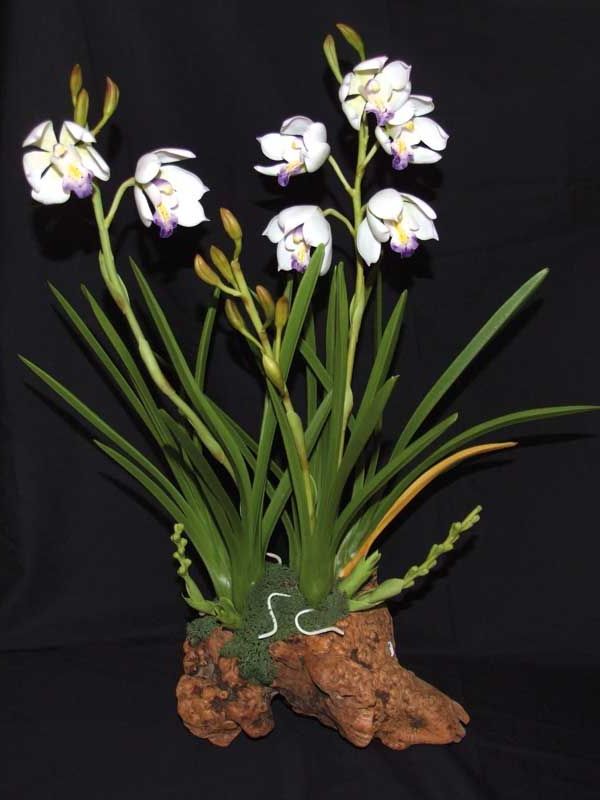
Flower detail
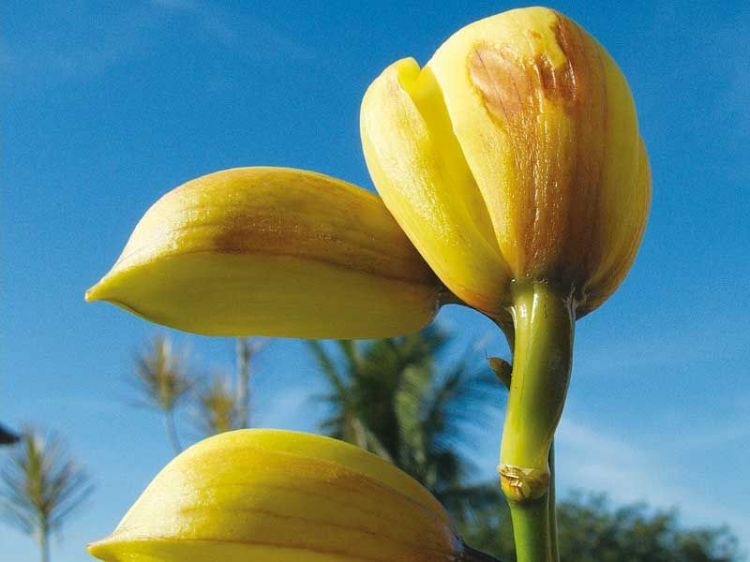
Cymbidium
